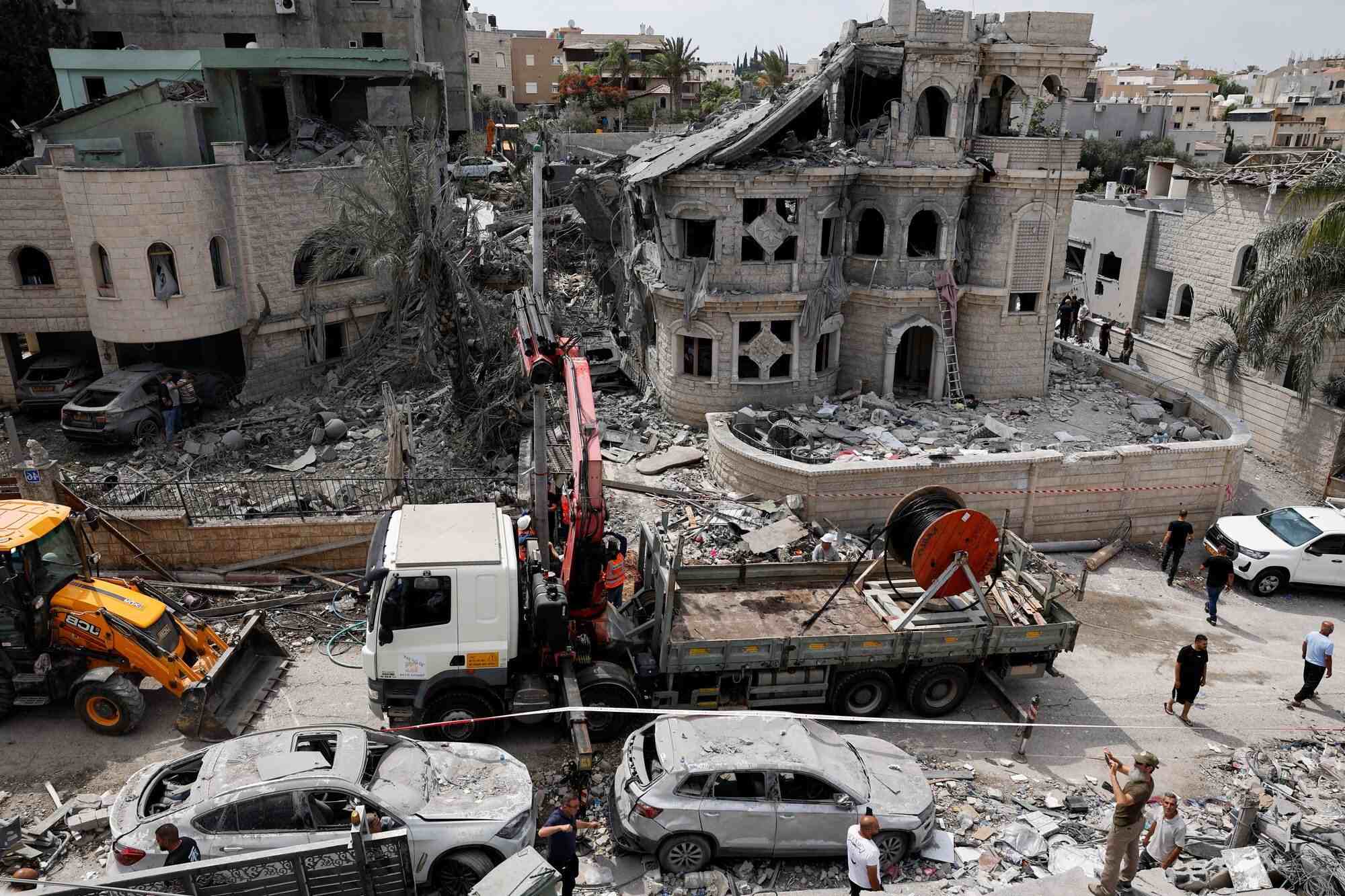
Why does Israel attack Iran? Israel's attacks on Iran stem from a complex mix of security concerns, geopolitical strategies, and historical tensions. Israel views Iran's nuclear program as a significant threat to its existence, fearing that a nuclear-armed Iran could destabilize the region. Iran's support for militant groups like Hezbollah and Hamas further fuels Israeli fears, as these groups often target Israeli civilians and soldiers. Additionally, Iran's influence in Syria and Iraq poses strategic challenges for Israel, leading to preemptive strikes to curb Iranian military presence. These actions are part of Israel's broader strategy to maintain regional security and deter potential threats. Understanding these dynamics helps explain the ongoing conflict and the reasons behind Israel's military actions.
Historical Context
Understanding the history between Israel and Iran helps explain the current tensions. These two nations have a complex relationship that has evolved over decades.
-
Pre-Revolution Relations: Before the 1979 Iranian Revolution, Israel and Iran had relatively friendly relations. Both countries saw mutual benefits in economic and military cooperation.
-
Post-Revolution Shift: After the revolution, Iran's new Islamic government adopted an anti-Israel stance, calling for the elimination of the Israeli state.
-
Regional Influence: Iran's support for groups like Hezbollah and Hamas, which oppose Israel, has further strained relations.
Military Engagements
Military actions between Israel and Iran have been numerous and varied. These engagements often occur indirectly through proxy groups or covert operations.
-
Covert Operations: Israel has been accused of conducting covert operations inside Iran, including the assassination of Iranian nuclear scientists.
-
Airstrikes in Syria: Israel frequently targets Iranian military installations in Syria, aiming to prevent the transfer of advanced weaponry to Hezbollah.
-
Cyber Warfare: Both nations engage in cyber warfare. The Stuxnet virus, which targeted Iran's nuclear program, is widely believed to be an Israeli-American creation.
Nuclear Concerns
Iran's nuclear ambitions are a significant source of tension. Israel views a nuclear-armed Iran as an existential threat.
-
Nuclear Program: Iran insists its nuclear program is for peaceful purposes, but Israel and many Western nations suspect it aims to develop nuclear weapons.
-
International Agreements: The 2015 Iran nuclear deal aimed to limit Iran's nuclear capabilities. Israel opposed the deal, arguing it didn't go far enough to prevent Iran from obtaining nuclear weapons.
-
Military Preparedness: Israel has repeatedly stated it will take military action if necessary to prevent Iran from acquiring nuclear weapons.
Diplomatic Efforts
Diplomatic efforts to ease tensions have been ongoing but often face significant challenges.
-
Backchannel Talks: Despite public hostilities, there have been reports of secret backchannel communications between Israeli and Iranian officials.
-
International Mediation: Various countries, including the United States and European nations, have attempted to mediate between Israel and Iran, with limited success.
-
Sanctions: Israel has lobbied for international sanctions against Iran to curb its nuclear program and limit its regional influence.
Public Opinion
Public opinion in both countries plays a role in shaping government policies and actions.
-
Israeli Perspective: Many Israelis view Iran as their most significant security threat, supporting their government's hardline stance.
-
Iranian Perspective: In Iran, anti-Israel sentiment is widespread, fueled by government propaganda and regional politics.
-
Global Views: The international community is divided, with some countries supporting Israel's right to defend itself and others criticizing its aggressive tactics.
Final Thoughts on Israel's Attacks on Iran
Understanding Israel's attacks on Iran involves looking at a complex web of historical tensions, geopolitical strategies, and security concerns. These attacks aren't just isolated incidents but part of a broader strategy to counter perceived threats from Iran's nuclear ambitions and regional influence. The international community often finds itself divided on these actions, with some supporting Israel's right to defend itself and others calling for diplomatic solutions.
For those interested in global politics, keeping an eye on this ongoing conflict is crucial. It impacts not just the Middle East but also global security dynamics. Staying informed helps in understanding the broader implications of these actions on international relations and peace efforts.
In essence, the Israel-Iran conflict is a significant piece of the puzzle in the ever-evolving landscape of global politics.
Was this page helpful?
Our commitment to delivering trustworthy and engaging content is at the heart of what we do. Each fact on our site is contributed by real users like you, bringing a wealth of diverse insights and information. To ensure the highest standards of accuracy and reliability, our dedicated editors meticulously review each submission. This process guarantees that the facts we share are not only fascinating but also credible. Trust in our commitment to quality and authenticity as you explore and learn with us.
